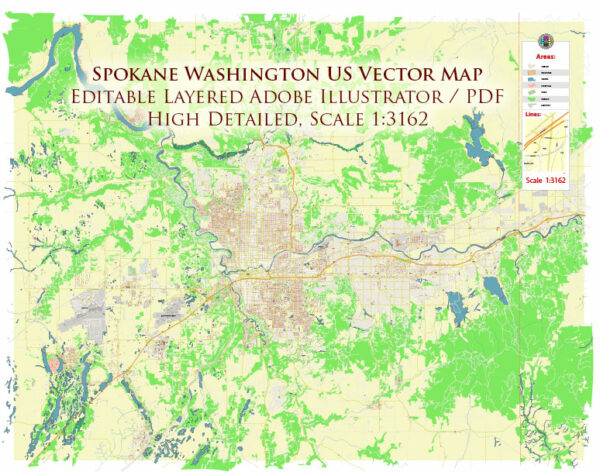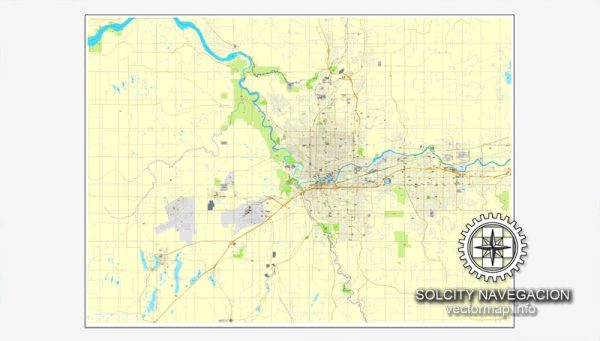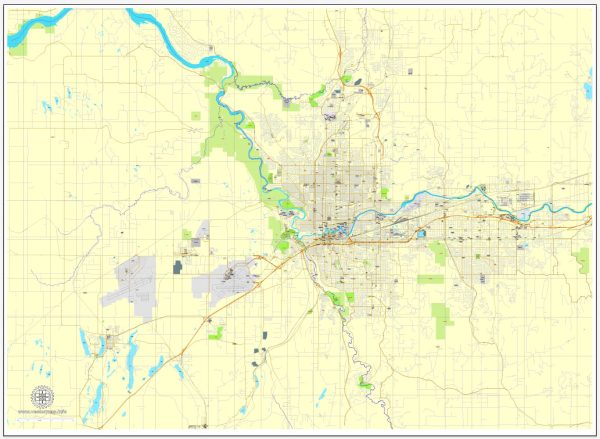Spokane, Washington, located in the northwestern United States, is known for its diverse and beautiful ecological landscape. Here’s an ecological description of the area:
- Climate: Spokane experiences a semi-arid climate with four distinct seasons. Summers are warm and dry, while winters are cold and snowy. The annual precipitation is relatively low, with most of it falling as snow in the winter months. This climate greatly influences the local ecology.
- Vegetation: The natural vegetation in the Spokane area consists of a mix of coniferous and deciduous trees. Ponderosa pine, Douglas fir, and western red cedar are common coniferous species, while maple, aspen, and various types of oak are among the deciduous trees. Grasslands and shrub-steppe ecosystems are also present in the surrounding areas.
- Waterways: Spokane is situated along the Spokane River, which plays a crucial role in the city’s ecology. The river and its associated tributaries provide habitat for various aquatic species, and they are a focal point for outdoor recreational activities.
- Wildlife: The region is home to a diverse range of wildlife. You can find animals such as white-tailed deer, mule deer, elk, moose, and black bears in the surrounding forests and mountains. Birdwatchers can spot a variety of avian species, including bald eagles, ospreys, great horned owls, and a wide array of waterfowl along the river and nearby lakes.
- Lakes and Wetlands: Spokane and its vicinity have several lakes, including Spokane Lake and Liberty Lake. These water bodies are essential for local ecosystems, supporting aquatic plants, fish, and waterfowl. Wetlands also play a vital role in preserving biodiversity and maintaining water quality.
- Conservation Efforts: The region places a strong emphasis on ecological conservation and sustainability. Organizations and government agencies work to protect and restore local ecosystems, such as the Dishman Hills Natural Area, Turnbull National Wildlife Refuge, and Riverside State Park, which offer opportunities for outdoor recreation and wildlife conservation.
- Urban Ecology: Spokane, as a growing urban center, is also home to various urban ecosystems. Parks, green spaces, and community gardens contribute to the city’s overall ecological diversity. Efforts to maintain clean air and water, reduce pollution, and promote sustainable living practices are prevalent in the area.
- Invasive Species: Like many areas, Spokane faces challenges related to invasive species that can disrupt local ecosystems. Efforts are made to control and manage these non-native species to protect native flora and fauna.
Overall, Spokane, Washington, boasts a diverse ecological landscape that ranges from lush forests to arid shrub-steppe regions. The city and its surrounding areas offer residents and visitors opportunities to engage with and appreciate the natural world while also working to preserve and protect these ecosystems for future generations.




 Author: Kirill Shrayber, Ph.D. FRGS
Author: Kirill Shrayber, Ph.D. FRGS